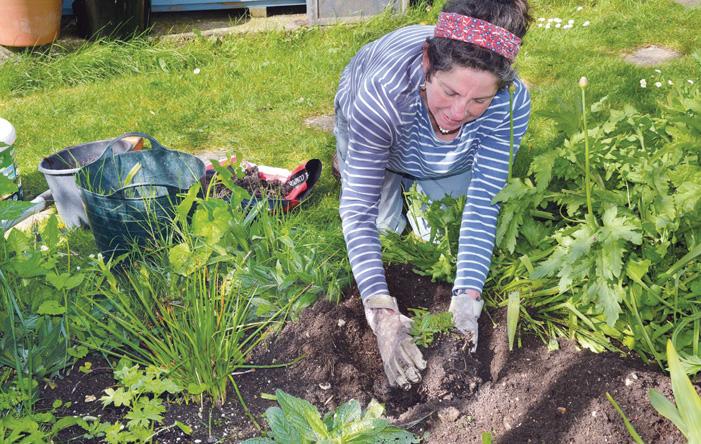
The soil and air temperatures are warm enough for sowing directly now, so add hardy and half hardy annuals to any borders that have gaps between plants.
Plant perennials and bedding plants, making sure they have enough space to grow well and healthily.
We are at the end of No Mow May, but we would still encourage you to leave a patch of wild flowers and long grass to welcome insects, invertebrates, amphibians and other garden wildlife – many of them will also help you deal with any pest problems.
Keep the greenhouse well ventilated. Cover the glass with shading netting or paint so plants don’t get scorched, and wet the floor to lower the temperature.
Harvest grey water and shower water, and use collected rainwater to top up your pond is the water level falls.
This story is from the May 27, 2023 edition of Amateur Gardening.
Start your 7-day Magzter GOLD free trial to access thousands of curated premium stories, and 9,000+ magazines and newspapers.
Already a subscriber ? Sign In
This story is from the May 27, 2023 edition of Amateur Gardening.
Start your 7-day Magzter GOLD free trial to access thousands of curated premium stories, and 9,000+ magazines and newspapers.
Already a subscriber? Sign In

To dig or not to dig?
Should we be carrying out a full dig on plots now? Bob considers the pros and cons of the 'autumn dig' debate

The box ball blues
As if his beleaguered box hadn't already taken a beating, Toby now has to deal with some hungry box caterpillars

Save your own seeds
Masterclass on: seed saving

Strange sightings
Three unusual insects turn up in Val's garden in one day

A bolt from the blue!
Cornflowers are perfect for garden and vase

Winter moth prevention
Ruth shows you how to avoid maggoty tree fruits

Create a winter container
There are as many options as in summer

Lightweight gardening tools
AS well as being good for our mental health, gardening is also great exercise.

Autumn price round-up
AG finds better bargains in lesser-known brands

Rudbeckias
Rudbeckias are ideal for sunny summer patios and borders, with some able to survive our coldest winters